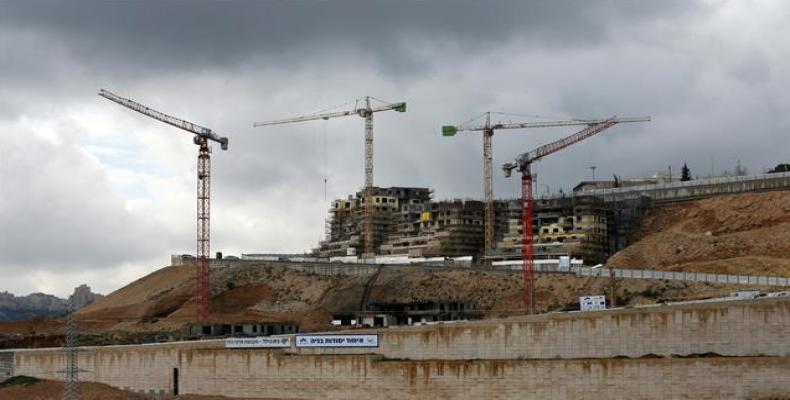Tel Aviv, February 9 (RHC)-- The Israeli government has approved the construction of over 1,000 new settler units in the occupied West Bank, a few days after the Israeli parliament passed legislation legalizing settler outposts built on private Palestinian land.
On Wednesday, the Anadolu Agency cited the Israeli Walla news site as reporting that the Israeli Civil Administration’s Supreme Planning Committee had approved a total of 1,162 new settler units to be built on various locations through the West Bank. It noted that a new neighborhood in the Shvut Rachel settlement located in northern Jerusalem was part of the approved plan.
"The neighborhood was initially prepared to accommodate the Israeli settlers who were evacuated from the Amona outpost,” the report added.
Last week, the Israeli forces clashed with the settlers while evicting them from the Amona outpost built on private Palestinian land in the West Bank.
The recent approval comes just one day after a barrage of international condemnations over the Israeli law that retroactively legalizes some 4,000 settler units built on land owned by Palestinians in the occupied West Bank.
Since the January 20 inauguration of US President Donald Trump, Tel Aviv has launched a major expansion drive, which includes the plans for the construction of thousands of new settler units in the West Bank.
In December 2016, the United Nations Security Council adopted Resolution 2334 that denounced the Israeli settlements as a “flagrant violation of international law.”
Israeli Authorities Approve More Than 1,000 Settler Units in West Bank

Matérias relacionadas
Comentários
Deixe um comentário
Todos os campos são requeridosMais vistas
- Claver-Carone, o prazer de causar dor em curto prazo
- Nicolás Maduro recorda golpe militar contra Hugo Chávez em 2002
- Presidente de Cuba discursa na 9ª Cúpula da CELAC em Honduras
- Sensacional sucesso cubano no Mundial Pro Tour de Vôlei de Praia
- Ministros das Relações Exteriores da CELAC advogam por avanços na integração regional

